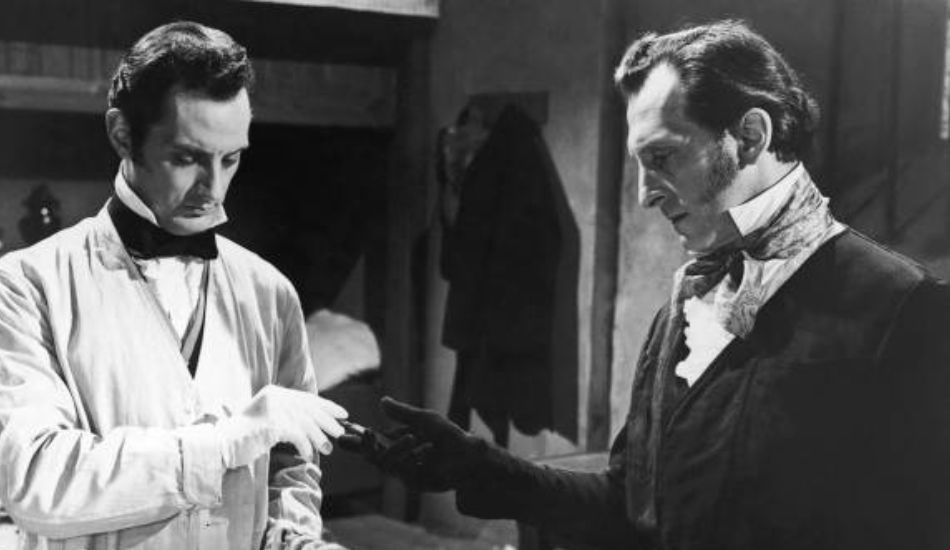Dr. Victor Frankenstein: The Man Behind the Monster

Few names in literature evoke as much fascination, fear, and philosophical reflection as Dr. Victor Frankenstein. Since Mary Shelley first introduced him in her groundbreaking 1818 novel Frankenstein; or, The Modern Prometheus, Victor has become an enduring symbol of ambition, genius, and the tragic consequences of overreaching human curiosity.
Although popular culture often blurs the line between creator and creation—calling the monster itself “Frankenstein”—the truth is that Victor Frankenstein is the scientist, the “modern Prometheus” who steals the fire of life from nature and pays for it with his sanity, his family, and ultimately, his life.
This in-depth article explores every key aspect of the man behind the myth: who Dr. Victor Frankenstein truly is, his background, age, wealth, family, portrayals in film and television, his role in Penny Dreadful, and his tragic relationships and legacy.
Who Is Dr. Victor Frankenstein?
Victor Frankenstein is a fictional character born in Geneva, Switzerland, the son of a well-known and respected family. A brilliant young scientist, Victor becomes obsessed with uncovering the secret of life itself. His fascination with natural philosophy and chemistry eventually leads him to the dark pursuit of reanimating the dead.
At the University of Ingolstadt, he succeeds in his experiment—breathing life into a being pieced together from corpses. But his triumph turns to horror as he realizes the monstrous appearance of his creation. Repulsed and terrified, Victor abandons the creature, setting off a tragic chain of events that destroy his family, his friends, and himself.
Shelley’s portrayal of Victor Frankenstein is complex: he is both a visionary and a cautionary figure, representing the dual nature of human ambition. His brilliance inspires sympathy, yet his arrogance and irresponsibility lead to ruin.
The Early Life and Background of Victor Frankenstein
Victor’s upbringing is one of privilege and comfort. His father, Alphonse Frankenstein, is a respected citizen of Geneva—wise, patient, and deeply moral. His mother, Caroline Beaufort Frankenstein, is compassionate and nurturing, but dies early in Victor’s life, often depicted as succumbing to scarlet fever. Her death profoundly affects Victor and ignites his obsession with conquering death.
Victor’s family adopts Elizabeth Lavenza, who becomes both his closest companion and, later, his fiancée. From a young age, Victor is fascinated by ancient alchemists and their writings on immortality and transformation. Though dismissed as outdated by his professors, these early readings shape his scientific ambitions.
Encouraged to pursue modern science, Victor immerses himself in anatomy, chemistry, and natural philosophy. He begins to believe that life is a puzzle waiting to be solved—and that he is destined to solve it. This combination of genius, idealism, and personal loss sets the stage for his greatest and most terrible discovery.
Dr. Victor Frankenstein’s Age
Mary Shelley never gives a specific age for Victor Frankenstein, but close reading offers clues. When his mother dies, he is still a teenager—around sixteen or seventeen years old. Soon after, he leaves home to attend university.
When he creates the creature, he is likely in his early twenties. By the time of his marriage to Elizabeth and his pursuit of the creature across the Arctic, he may be in his late twenties or early thirties.
So, while there is no exact number, readers can safely assume that Victor’s story spans roughly from his late teens into his early thirties—a short, tragic life consumed by ambition and guilt.
Dr. Victor Frankenstein’s “Net Worth”
As a fictional character, Victor Frankenstein doesn’t have a literal net worth, but in context he comes from a wealthy and well-established family. The Frankensteins are described as one of Geneva’s most distinguished families, with a large home, servants, and the means to support Victor’s scientific education abroad.
His social position and financial freedom allow him to study without restraint and to pursue his experiments independently—something few could afford in that era. This privilege highlights a key theme in Shelley’s novel: the moral responsibility that comes with power, knowledge, and resources.
So while Victor’s “net worth” cannot be measured in money, his intellectual and social capital are immense—and tragically misused.
Victor Frankenstein on Film and Television
Since the 1930s, Victor Frankenstein has been one of cinema’s most frequently re-imagined characters. From early black-and-white horror films to modern re-tellings, filmmakers have continually reinvented his image—from deranged scientist to tragic genius.
Notable portrayals include:
- Colin Clive in the 1931 classic Frankenstein, where Victor becomes the archetype of the mad scientist.
- Kenneth Branagh, who directed and starred as Victor in Mary Shelley’s Frankenstein (1994), offering a more faithful adaptation of the novel.
- James McAvoy as Victor in Victor Frankenstein (2015), a re-imagining told through the eyes of his assistant, Igor.
A new adaptation, directed by Guillermo del Toro and set to release on Netflix in 2025, will feature Oscar Isaac as Victor Frankenstein. This highly anticipated version is expected to bring a fresh, gothic perspective to the story for modern audiences.
Victor Frankenstein in Penny Dreadful
One of the most compelling modern portrayals of Victor Frankenstein appears in the television series Penny Dreadful (2014–2016). In this dark and atmospheric series, the character is played by Harry Treadaway, who delivers a haunting, emotional performance that adds psychological depth to Victor’s character.
In Penny Dreadful, Victor is portrayed as a young, melancholic genius, more poetic than monstrous. His experiments are driven not by arrogance but by a desperate desire to overcome death. His relationships—with his creations, with Vanessa Ives, and with other figures of the supernatural world—show a man constantly battling between scientific curiosity and moral horror.
Treadaway’s interpretation made Victor one of the show’s most memorable figures. His quiet intensity and moral conflict humanize him, showing how the pursuit of knowledge can both elevate and destroy.
Family, Relationships, and Tragedy
Victor Frankenstein’s family is central to his story. His relationships, both familial and romantic, shape his identity and underscore the tragedy of his downfall.
- Father: Alphonse Frankenstein is wise and deeply devoted to his son, though he fails to understand the depth of Victor’s obsession. His death from grief after the family’s tragedies marks the end of Victor’s support system.
- Mother: Caroline Beaufort’s death motivates Victor’s obsession with reversing death. Her memory haunts him throughout his life.
- Brothers: Ernest and William are Victor’s younger brothers. William’s murder by the creature is one of the novel’s most devastating moments.
- Elizabeth Lavenza: Adopted into the Frankenstein family, Elizabeth becomes Victor’s closest companion and eventual fiancée. Her murder on their wedding night by Victor’s creation is the ultimate act of revenge and seals Victor’s doom.
- Henry Clerval: Victor’s best friend and moral compass. His brutal murder by the creature symbolizes the destruction of Victor’s innocence.
Every person Victor loves dies as a result of his experiment. His tragedy is not just scientific—it’s deeply personal. His ambition isolates him, turning him from a man of promise into one consumed by remorse.
Marriage and Children
In Mary Shelley’s original novel, Victor marries Elizabeth Lavenza, his childhood companion and adopted cousin. Tragically, their marriage lasts only a single day. On their wedding night, the creature murders Elizabeth in revenge for Victor’s refusal to create a companion for him.
Victor never has children. His only “offspring” is the creature itself—a symbol of his hubris and a perverse reflection of his creative power. Through this lens, Shelley explores the idea of parental responsibility and the dangers of neglect.
Victor’s inability to nurture or accept the being he created parallels his failure to sustain any real human relationship. His life ends in isolation, chasing the monster he gave life to—a man haunted by his own creation.
The Symbolism of Victor Frankenstein
Victor Frankenstein represents the eternal human conflict between ambition and ethics. His story is one of knowledge without wisdom, creation without compassion. Shelley’s narrative warns of the dangers inherent in scientific discovery when divorced from moral restraint.
Victor’s tragedy continues to resonate today, as society grapples with advancements in artificial intelligence, genetics, and bioengineering. His tale asks us to consider not only what we can do—but what we should do.
Beyond his cautionary role, Victor also embodies the Romantic ideal of the tortured genius—a man striving to transcend human limits, only to be destroyed by his own success. This makes him both villain and victim, creator and destroyer.
Victor Frankenstein’s Enduring Legacy
More than two hundred years after his creation, Victor Frankenstein remains one of literature’s most iconic figures. His name has become shorthand for the dangers of scientific overreach and the loneliness of genius.
Through countless adaptations—films, plays, television, and now streaming series—each generation reinterprets Victor’s story in its own image. Sometimes he is a villain; sometimes a visionary. But always, he is human: flawed, ambitious, tragic, and unforgettable.
In the end, Victor Frankenstein’s true horror lies not in his monster, but in his reflection of ourselves—our desire to create, to control, and to defy the natural order.
Final Thoughts
Dr. Victor Frankenstein’s story is as relevant today as it was in 1818. He is the original modern scientist torn between intellect and morality—a man whose greatest success becomes his downfall. His youth, privilege, and brilliance all feed his fatal flaw: the belief that he can master life and death.
Whether depicted by Harry Treadaway in Penny Dreadful, James McAvoy in Victor Frankenstein, or Oscar Isaac in the upcoming Netflix film, the essence remains the same. Victor is the dreamer who flies too close to the sun, the man who builds a monster to escape mortality and instead becomes immortal through tragedy.
His story continues to haunt, inspire, and warn us—a timeless reflection on the human condition.
This article is published on fanzineblog.

